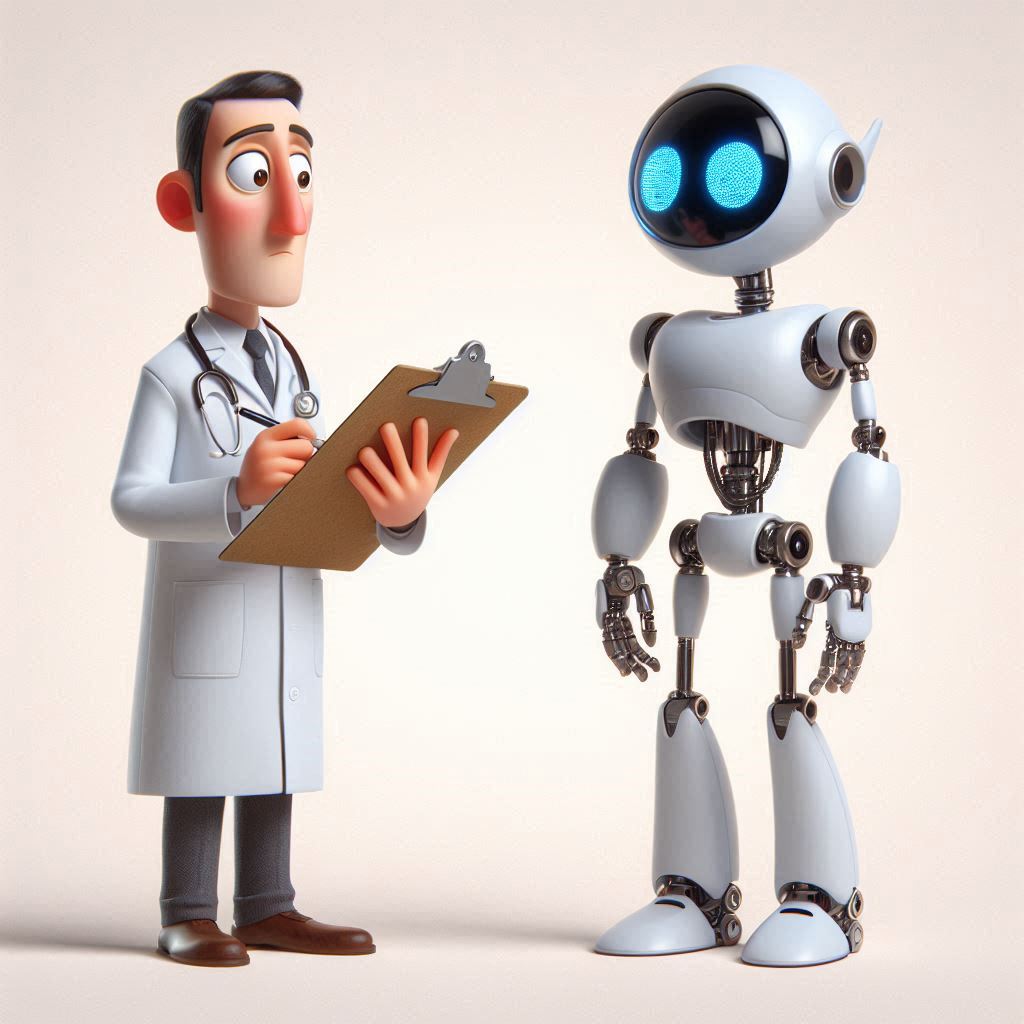In recent years, artificial intelligence (AI) has made remarkable strides, permeating various aspects of our daily lives and revolutionizing industries across the board. From virtual assistants on our smartphones to advanced algorithms powering search engines and recommendation systems, AI has become an integral part of the modern world. However, as AI capabilities continue to expand, a common concern has emerged: Will AI replace human workers? This article argues that AI is here to assist us, not to replace us, and explores how this technology can enhance human capabilities rather than render them obsolete.
The Complementary Nature of AI and Human Intelligence
AI excels in areas where large amounts of data need to be processed quickly, patterns need to be identified, or repetitive tasks need to be performed with high accuracy. However, human intelligence possesses unique qualities that AI has yet to replicate fully. These include emotional intelligence, creativity, critical thinking, and complex problem-solving skills.
Dr. Fei-Fei Li, Co-Director of Stanford University’s Human-Centered AI Institute, emphasizes this complementary relationship:
“AI is made by humans, intended to behave by humans, and, ultimately, to impact humans’ lives and human society.”
This perspective underscores the idea that AI is a tool created by humans to serve human needs and augment human capabilities, not to replace them entirely.
How AI Assists Us
- Enhancing Productivity: AI can automate routine and time-consuming tasks, allowing humans to focus on more complex, creative, and strategic work. For example, in the field of customer service, AI chatbots can handle simple queries, freeing up human agents to deal with more complex customer issues that require empathy and nuanced understanding.
- Providing Insights: AI’s ability to analyze vast amounts of data can provide valuable insights that humans might overlook. In healthcare, AI can assist doctors in diagnosing diseases by analyzing medical images or patient data, but the final decision-making and patient care remain in the hands of human medical professionals.
- Improving Decision-Making: AI can process and analyze large amounts of information quickly, providing humans with data-driven recommendations. However, the final decision often requires human judgment, considering ethical implications and contextual factors that AI might not fully grasp.
- Enhancing Creativity: Contrary to the belief that AI might stifle human creativity, it can actually enhance it. AI tools can generate ideas or variations that humans can then refine and develop further, expanding the boundaries of creative possibilities.
- Personalization: AI enables the customization of products and services on a scale that would be impossible for humans alone. From personalized learning experiences in education to tailored content recommendations in entertainment, AI helps deliver more relevant and engaging experiences.
Why AI Won’t Replace Us
- Emotional Intelligence: Humans possess a unique ability to understand and respond to emotions, a crucial skill in many professions such as counseling, leadership, and teaching. While AI can recognize emotions to some extent, it cannot truly empathize or build genuine emotional connections.
- Adaptability and Creativity: Humans can adapt to new situations and think creatively in ways that AI currently cannot. Our ability to think outside the box, make unexpected connections, and innovate is still unmatched by machines.
- Ethical Decision-Making: Complex ethical decisions require a deep understanding of human values, cultural contexts, and moral implications. While AI can be programmed with ethical guidelines, it lacks the nuanced understanding required for making difficult ethical choices in ambiguous situations.
- Complex Problem-Solving: Many real-world problems are ill-defined and require a combination of analytical thinking, creativity, and intuition to solve. Humans excel at navigating such complex, multifaceted challenges.
- Social Skills and Collaboration: Many jobs require strong interpersonal skills, teamwork, and the ability to build relationships. These quintessentially human skills are difficult, if not impossible, for AI to replicate authentically.
Stuart Russell, a professor of computer science at UC Berkeley and a prominent AI researcher, puts it succinctly:
“The primary threat from highly advanced AI systems is not that they will turn against us, but rather that they will do exactly what we ask them to do.”
This quote highlights the importance of human oversight and direction in the development and application of AI technologies.
The Future: Human-AI Collaboration

As we move forward, the most likely and beneficial scenario is one of human-AI collaboration. This approach leverages the strengths of both human intelligence and artificial intelligence to achieve outcomes that neither could accomplish alone.
Ginni Rometty, former CEO of IBM, envisions this collaborative future:
“Some people call this artificial intelligence, but the reality is this technology will enhance us. So instead of artificial intelligence, I think we’ll augment our intelligence.”
This perspective emphasizes how AI can enhance human capabilities rather than replace them. For instance, in fields like scientific research, AI can help scientists process and analyze vast amounts of data, identify patterns, and generate hypotheses. However, it’s the human scientists who will interpret these findings, design experiments, and drive scientific discovery forward.
Conclusion
While AI continues to advance at a rapid pace, it is crucial to remember that its purpose is to assist and augment human capabilities, not to replace them. By embracing AI as a powerful tool and collaborator, we can harness its potential to solve complex problems, drive innovation, and improve our quality of life.
The key lies in developing AI systems that complement human skills and in preparing the workforce for a future where human-AI collaboration is the norm. This involves not only technical training but also emphasizing and developing uniquely human skills such as creativity, emotional intelligence, and ethical reasoning.
As we navigate this AI-augmented future, it’s essential to approach the technology with a balanced perspective – recognizing its immense potential while also acknowledging the irreplaceable value of human intelligence and creativity. By doing so, we can ensure that AI remains a tool for human empowerment and progress, enhancing our capabilities and opening up new possibilities for innovation and growth.

